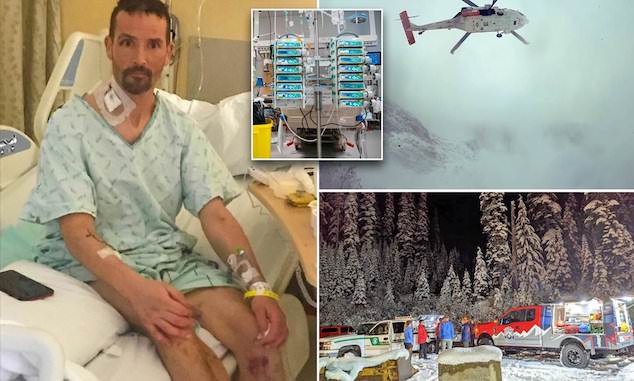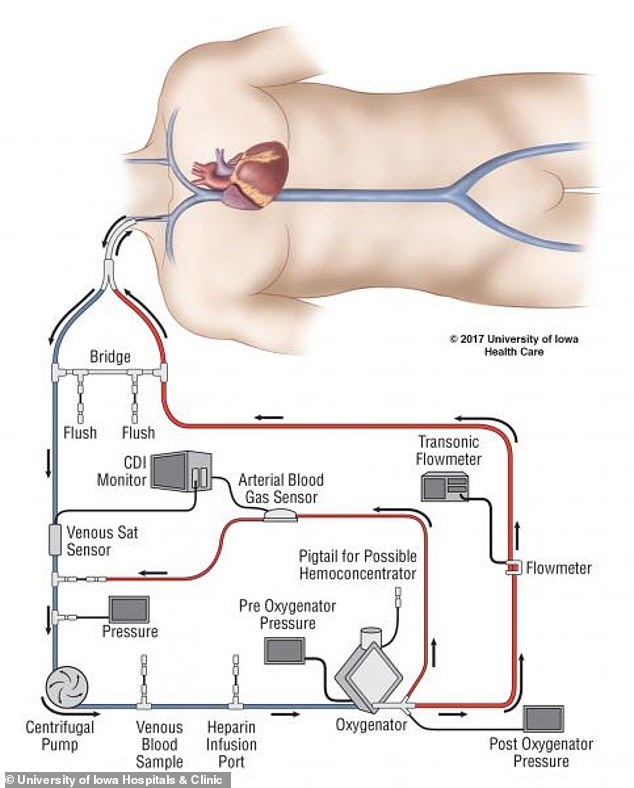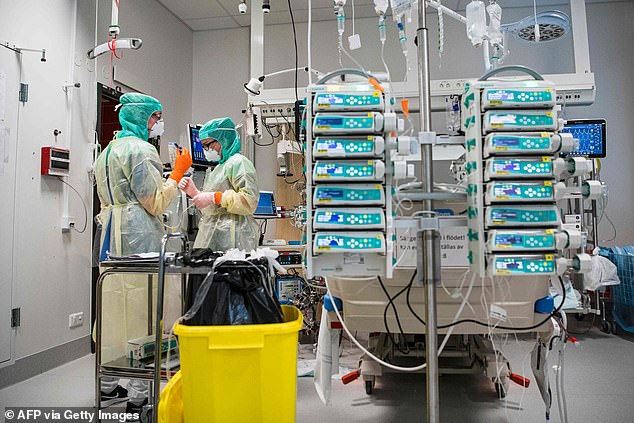
Michael Knapinski Seattle hiker brought back to life after Mt Rainier fall in which his heart stopped beating for 45 minutes as doctors hooked him up to ECMO, machine.
A hiker who was rescued after getting lost in a whiteout in a Washington state park ‘came back from the dead’ after his heart stopped for 45 minutes, in what doctors are describing as an astonishing recovery.
Michael Knapinski, 45, ‘died’ at the Harborview Medical Center’s ER after being airlifted from Mount Rainier National Park on Nov. 8 The Seattle Times reports.
He had a ‘faint pulse’ when he arrived at the hospital but his heart stopped shortly thereafter, Dr. Jenelle Badulak told the media outlet.
‘He died while he was in the ER, which gave us the unique opportunity to try and save his life by basically bypassing his heart and lungs, which is the most advanced form of artificial life support that we have in the world,’ Badulak said.
He remained dead for about 45 minutes as a medical team administered CPR and hooked him up to an extracorporeal membrane oxygenation, or ECMO, machine, which pumps blood to a heart-lung machine that removes carbon dioxide and sends oxygen-filled blood back.

‘He was crying and they were crying and I’m fairly sure I cried a little bit,’
The Woodinville resident had been hiking with a friend when the two separated below the Muir Snowfield and planned to meet up later in Paradise, an area about 5,400 feet on the south slope of Mount Ranier.
‘I was pretty close to the end (of the trail). … Then it turned to whiteout conditions, and I couldn’t see anything,‘ Knapinski who made the trek on snow shoes, recalled. ‘I’m not sure what happened. I think I fell.’
When Knapinski failed to show up, his friend reported him missing and three National Park Service teams launched a rescue effort which became hampered by frigid conditions of 16 degrees.
A helicopter spotted Knapinski in the Nisqually River drainage, which ground teams reached about an hour later. A Navy chopper flew him to Seattle’s Harborview Medical Center, where he arrived unconscious.
Two days after doctors restarted his heart, Knapinski opened his eyes.
Trauma nurse Whitney Holen said the first thing he wanted to do was call his family.
‘He was crying and they were crying and I’m fairly sure I cried a little bit,’ Holen told The Seattle Times. ‘It was just really special to see someone that we had worked so hard on from start to finish to then wake up that dramatically and that impressively.’

‘…his heart wasn’t beating for more than 45 minutes’
Holen added: ‘It reminded me of this is why we do this. This is why we are doing the long hours, this is why we’re away from our families, this is why we’re here.’
Even though his kidneys were still not functioning properly and he suffered serious frostbite, Knapinski is expected to be OK.
‘He came back from the dead. … Maybe not medically quite correct, but his heart wasn’t beating for more than 45 minutes,’ said Dr. Saman Arbabi, medical director of the surgical intensive-care unit. ‘It’s amazing.’
Knapinski said he spends a lot of time volunteering at a Salvation Army Food Bank and building houses for foster children.
‘And as soon as I get physically able, that’s going to be my calling in life,’ he told the Seattle Times. ‘Just helping people. … I’m still just shocked and amazed.’
He added: ‘(The Harborview staff) just didn’t give up on me. … They did one heck of a job at keeping me alive. I’ve got a million people to thank.’





